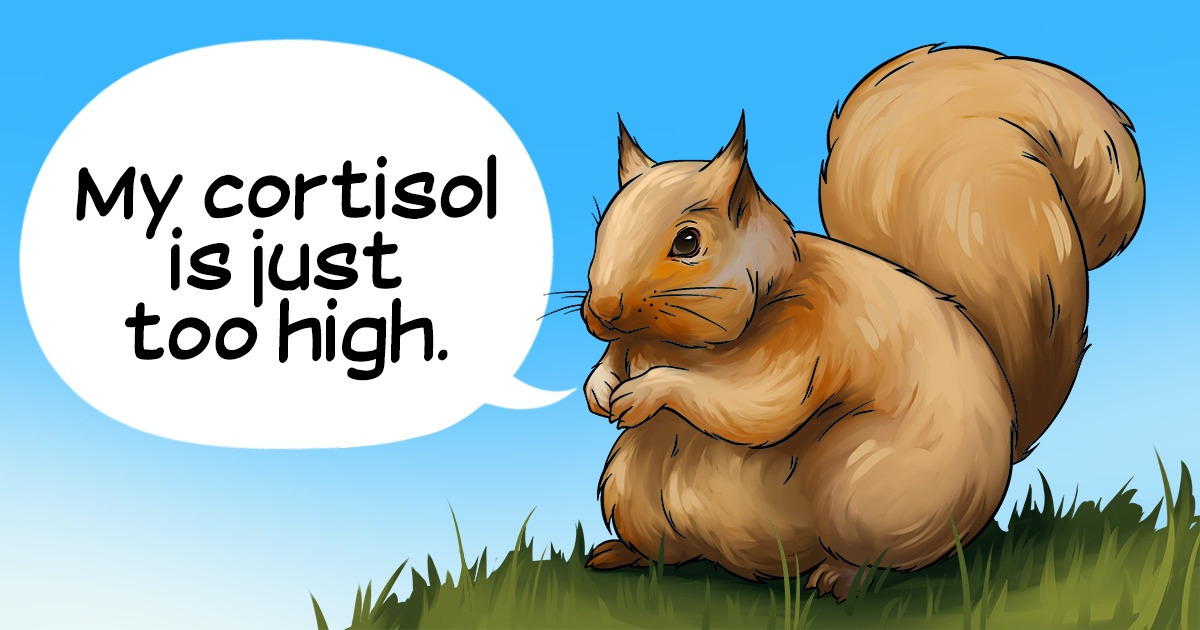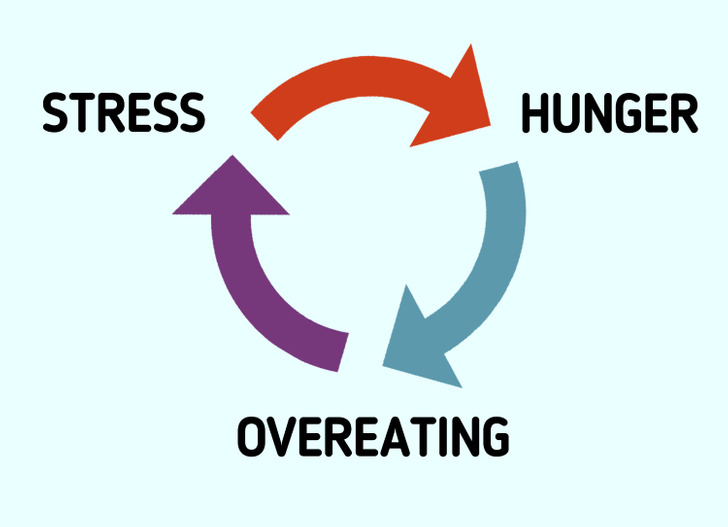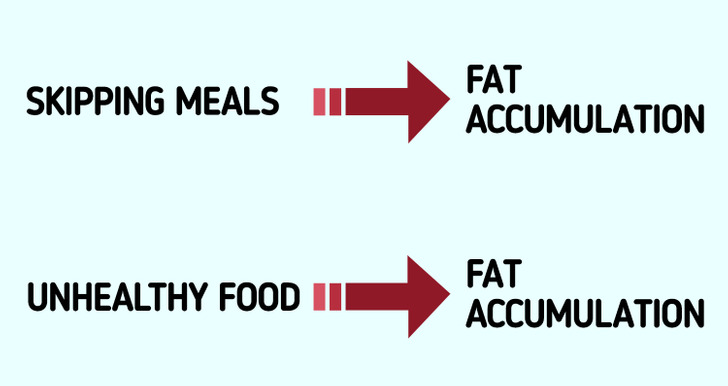Why Stress Might Stop You From Losing Weight

Stress is a factor that can contribute to weight gain or prevent weight loss, even if the person leads an active lifestyle and adheres to healthy eating habits.
5-Minute Crafts decided to find out why stress can stop you from losing weight.
Stress is an important aspect of human biology, as it allows us to react quickly and decisively in various difficult situations.
During periods of stress, the body secretes a special hormone, cortisol, which is synthesized from cholesterol. It provided energy to our distant ancestors who had to deal with wild animals and other threats. Therefore, it’s a useful tool from an evolutionary point of view.
Modern people get stressed due to other causes, like difficulties associated with work, but cortisol is produced in this case too. However, a person doesn’t need as much energy to solve these problems.
Cause 1: more glucose in the blood and retention of fat
In a stressful situation, the production of cortisol makes the body stop fat from being released from fat stores and stimulates the production of glucose in the blood, which is later converted into fat. This slows down the production of insulin, meaning the cells no longer consume sugar as actively, and an excess amount of glucose circulates in the blood plasma.
The combination of these factors ensures that the body has an energy reserve to function during a stressful period. But at the same time, the brain triggers the fight-or-flight response, after which cortisol directs energy away from the processes that the body considers non-urgent at this tense moment (for example, immunity or digestion).
Also, cortisol inhibits the synthesis of collagen, protein, and bones, reduces the absorption of amino acids by muscles, and affects other psychological, immunological, and metabolic functions of the body.
Cause 2: a stronger feeling of hunger and a craving for sweet and high-fat foods

During stressful periods, you can feel hungrier, even after you’ve eaten. This reaction leads to overeating. At the same time, many people, while being under stress, seek solace in fast food, which also contributes to weight gain.
We tend to crave more sweet, salty, or high-fat foods because these foods bring pleasure due to the chemical reactions happening in the body. It seems that these foods help to get rid of stress, but, in fact, they do not. Pleasure has a short-term effect and leads to addiction. Because of this, some people tend to eat more high-fat and sweet foods and gain weight as a result.
Cause 3: sleep disturbance
Stressed people often experience sleep disturbances. It can be in the form of insomnia or, conversely, sleeping longer than usual due to exhaustion and fatigue.
Scientists found that sleep deprivation causes the production of a hormone that controls hunger and stimulates the appetite for foods rich in carbohydrates and fats. All this can also lead to weight gain.
Cause 4: inconsistent eating patterns

Tension and stress can lead to eating disorders, like irregular meals or skipping meals. Due to the long and unusual pauses between meals, the body can’t predict when it’ll receive the calories it needs to function normally. For this reason, it begins to accumulate fat as a source of energy. If a person consumes unhealthy foods after that, the fat content in the body increases.
Cause 5: an impact on the pre-frontal cortex
Stress affects the pre-frontal cortex of the brain, which is responsible for planning, making good choices, exerting willpower, and emotional reactions. This means that if a person, when being calm, can prepare healthy food in advance and say no to sugary unhealthy snacks, they may simply not have enough willpower to follow all these rules when under stress.
If you can lose weight because of stress
Stress can cause weight loss as well. While most people gain weight, there are some who lose weight. Unfortunately, this way of losing weight is not healthy.
It can cause severe dehydration and weakness, suppression of the immune system, loss of appetite, and reduced muscle and fat mass, which, in some cases, can lead to a slowing of the metabolism.